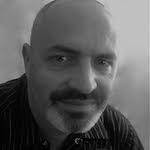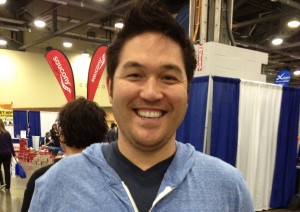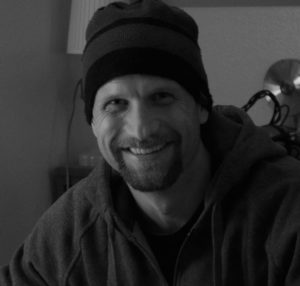 For the purposes of argument, let’s assume that we can distinguish between form and content in writing. The latter – content – could be taken broadly to include things like what happens in a book, who is involved in the action, and the way characters are depicted. The former – form – could be taken to include the manifold ways the story is told and shaped, along with the matters of “craft” the author brings to bear.
For the purposes of argument, let’s assume that we can distinguish between form and content in writing. The latter – content – could be taken broadly to include things like what happens in a book, who is involved in the action, and the way characters are depicted. The former – form – could be taken to include the manifold ways the story is told and shaped, along with the matters of “craft” the author brings to bear.
It seems that thinking about this distinction might be worthwhile, because in many contemporary debates about writing the focus is so squarely on matters of content. A great deal of potential controversy adheres to the questions of what race, gender and class our characters are; how they act, and whether these actions promote offensive stereotypes; how the other characters refer to them, etc. Because of these pressures, ours has become a world in which authors hire sensitivity readers to double-check the level of potential offensiveness of their work, and a world in which the ability of a person of one race to legitimately write a character of another race is regularly questioned. My point is not to argue the rightness or wrongness of these practices; it’s simply to point out that they posit the main point of importance in political or ideological struggles as being what happens in a story, rather than the way a story is constructed.
Often, this approach is taken a step further and it’s argued that talking about or teaching writing in formal terms is itself problematic, that formal discussion itself is somehow anti-political, a hindrance to the expression of oppressed groups, or to social critique. The MFA program workshop model, and in particular the flagship/Great Satan of that model, the Iowa Writers’ Workshop, has become something of a focal point for this line of thought. In focusing on matters of “craft” (read: formal techniques in fiction), the argument goes, this model neglects matters of history and politics. Further, arising as it did in the context of the Cold-War, the workshop model approach to fiction carries the necessary stain of American Imperialism and an ideological fixation with radical individualism and Modernist technique that is antithetical to minority experience and revolutionary (or any other) politics. It’s not simply that the slogan of “show don’t tell,” for example, is bound inextricably to white male privilege; any focus on the formal aspects of writing distracts from our ability to write politically, because it pulls us away from personal, historical, and identity-based expression.
Again, it’s not my purpose to take sides in the debate over the worth of MFA programs, to stake a position on the enormous problems faced by women and people of color in the writing and publishing world, or to argue for one notion of revolution over another. My purpose is to defend the notion that the political resides at least as deeply in form as it does in content, using the American hardboiled crime novel as an example.
Raymond Chandler rightly stands at the center of this tradition, and his novels are as good a starting place as any. In them a detective, Philip Marlow, is asked to solve a crime. He begins on this task; soon after, he discovers at least one other seemingly unrelated mysterious circumstance that will in the end prove not to be unrelated at all; he proceeds forward, following clues, getting beaten up, shot at, and lied to, until he closes in on his criminal; in the end, the identity of the killer is revealed, and the machinations of everything that has happened are made clear to us.
The general political critique of Chandler is easy to outline. These are stories that feature a white male protagonist, invested in violence, who solves other people’s problems; in the final pages it is nearly always a woman who is revealed as the scheming betrayer behind the crimes, and it is this woman who needs to be repudiated, if not killed, for justice to be done; minorities are either not present or presented in generally stereotypical and outmoded (and indeed often outright racist) ways. However, this critique rests nearly entirely on questions of content: who is involved, how they act, and how they’re portrayed by the author/narrator.
My question is whether there’s not another – formal – approach we could take to all of this, that would allow us additional insight and, more importantly, additional force in our own writing. One place to start might be with the question of whether, or in what ways, Chandler’s work (and the work of similar writers) could be seen as political. Often presented as a kind of knight-errant questing forward on the shoulders of his hero-detective, the truth is that Chandler was bracingly cynical. He ends his much quoted essay on the detective story, “The Simple Art of Murder” (1950) with a passage extolling knight-errantry on the part of protagonists in detective novels; he begins it, on the other hand, by noting that popular best-sellers are
“promotional jobs based on a sort of indirect snob-appeal, carefully escorted by the trained seals of the critical fraternity, and lovingly tended and watered by certain much too powerful pressure groups whose business is selling books, although they would like you to think they are fostering culture. Just get a little behind in your payments and you will find out how idealistic they are.”
This certainly sounds like someone who’s invested in the idea that the apparatchiks of capitalist culture might be putting their grubby little thumbs on the scale when it comes time to determine which books get published and which don’t. But Chandler’s argument in the essay is not that he’s writing anti-capitalist literature, of course; it’s a formal one. His goal is to distinguish a particularly American style of “realist” mystery writing – in contrast to what he sees as a more class-encumbered English one – and to point out that what his forbearers in that style, Dashiell Hammett in particular, did was to use it as a way of pointing out power relations in the world. “The realist in murder,” he argues,
“writes of a world in which gangsters can rule nations…a world where a judge with a cellar full of bootleg liquor can send a man to jail for having a pint in his pocket…where no man can walk down a dark street in safety because law and order are things we talk about but refrain from practising; a world where you may witness a hold-up in broad daylight and see who did it, but you will fade quickly back into the crowd rather than tell anyone, because the hold-up men may have friends with long guns, or the police may not like your testimony, and in any case the shyster for the defense will be allowed to abuse and vilify you in open court, before a jury of selected morons, without any but the most perfunctory interference from a political judge.”
To my ear, at least, there is a breathtakingly strange political mixture in this passage: an absolute condemnation of corrupt political power exerted against the common person goes hand in hand with a sardonic disdain for that common person and a Charlton Heston-esque support for good old law and order.
Confused? Perhaps. But one cannot charge it with not staking out political or ideological claims about our culture. And in a sense, its confusion is exactly the point. Language in writing – and especially the American language, the complexities of which Chandler was trying to tease out, a language that goes back through Dickenson, Mellville, Douglass, and the rest of them, and forward from Chandler through everyone who’s written since – is necessarily political in its form. The words that are chosen, the structures of the sentences, the level of diction: all of it is the ideological ground that lies beneath the content of those words and sentences.
For Chandler, the attempt of Hammett and the rest to re-tether the detective novel to the diction of “the street” was an attempt at a some sort of realist social politics. They believed that the literature of their time had obscured the assaultive horrors of much everyday life, and that these issues could be addressed at least in part through language. Do we agree that they were successful? Perhaps we do, perhaps we don’t; for the purposes of this essay, it’s enough to note that it may very well be the case that for a writer to neglect the formal aspects of the American language is for a writer to inhibit their own ability to write politically.
But the argument doesn’t stop at prose. To write and structure any novel one must think more or less formally; I think the emphasis on plotting in a mystery story makes it an easy place to tease out the connections between the formal moves of the writer’s technique and the political content of their work. Thinking through (or trying to write) a densely plotted crime novel leads one immediately to a realization of the importance of the kinds of things taught in writing workshops: handling of POV in terms of distance and person, showing versus telling, the structuring of scenes, the timing of reveals, etc.
In his famous interview with François Truffaut, Alfred Hitchcock makes a distinction between “surprise” and “suspense.” He explains that if two people in a story are having a conversation and are suddenly blown up by a bomb, it’s surprising. If we see someone plant the bomb, and then the characters enter, sit at the table, and begin their conversation, it’s suspenseful. What Hitchcock is getting at, in our terms, is the technical question of the effect on the audience created by the manipulation of the formal aspects of storytelling: how much information does the reader have, and when do they get it? How much do the characters have, and how much does the narrator have? At first, this may seem to be simply a matter of using storytelling mechanics to entertain the audience; if we pause for a moment, however, it becomes clear that it’s a formal element that lies at the heart of some of the most political writing we know. By thinking through and controlling POV and the rest, we’re creating a world that feels a certain way, either surprising or suspenseful, and in shaping the world in this way we are in fact making an assertion about the nature of that world.
One obvious place to explore this (and an obvious comparison to the hardboiled novel) is the work of Kafka. The Trial and The Castle are both set up somewhat along the lines of a “mystery” story. A character navigates through an oppressive, claustrophobic, absurd landscape in search of a McGuffin (to use Hitchcock’s term) he’s destined never to find (the facts behind his trial; the authority in the castle.) On a technical level, at least a part of the impact of Kafka’s work arises from his astounding control over formal elements of the art form. Kafka asserted in a moment of self-denigration in his journals that his success came from little more than his ability to re-create the feeling of being in a dream; reading his work closely, we realize that one way to understand this ability is in terms of maintaining a relationship between the consciousness of his reader and his protagonist such that we experience the absurdity of the world exactly as K. does. In somewhat barbaric, reductionist terms, this ability is a matter of being able to manipulate POV and closely control the information the reader has. And it is this claustrophobia itself, along with the power it gives Kafka of projecting us into an experienced world of absurdity, that at least in part allows him to construct a savage critique of modernity.
The connection of this to the American school of crime narrative, and the reason I’ve taken this detour, is to point out that in the hardboiled novel the feeling of being at the center of a claustrophobic maze is one of the most important elements. In a way not dissimilar to Kafka’s characters, Chandler’s protagonists are stuck in a labyrinth, the end result of which is disillusionment. That is to say, if Kafka uses a deep understanding of POV and interiority to write novels that reflect our sense of modernity as a thing that controls us far beyond our ability to control ourselves, Chandler and his ilk use similar mechanics, along with a control of information and plot along the lines of Hitchcock’s distinction, to create the feeling of being caught in a maze-like mystery, with deception and avarice around every corner. The ideological cynicism of these books and their critique of the America of their time come at least in part directly out of these formal elements.
A final way to approach these issues might be to return again to the ways these novels are politically problematic, and to use this to think through ways that we might respond to them with a literature of our own. The work of Mickey Spillane, whose first novel I, The Jury appeared in 1947, provides a wonderful opportunity to do this. Spillane’s work is interesting because it unabashedly celebrates, indeed valorizes, the aspects of Chandler’s work can be seen as the most politically problematic. In I, The Jury the narrator and protagonist, Mike Hammer, declares that what he likes to do is just go out and murder the criminals that the cops are too soft on; in one scene he beats up an African American man he notes is a good-looking “high yellow” and then checks the man’s wallet to find pictures of all the women the man has seduced, and finds that, yep, one of them was white (the obvious implication being that Hammer has righted a miscegenistic wrong); he falls in love with a super-hot woman psychiatrist, finds out that she’s the criminal mastermind behind everything, and murders her as painfully as possible her at the end. The whole is almost unbelievably fascistic. Not surprisingly, Ayn Rand was defender of his work (and he of hers); perhaps even less surprisingly, he sold over 130 million copies of his books and was for many years one of the most successful writers in America.
How are we to critique a writer like this? It’s all well and good to point out the radical misogyny, racism, and promotion of blood-lust in the content of his work, but to find anything more interesting to say, either as writers or critics, we need to move almost immediately to thinking formally. Like the verbiage of Donald Trump, Spillane’s first-person narration is continually over-insistent about its own toughness, intelligence, dynamo sexuality, and animal attractiveness to women. The plotting of the book means that, contrast to Chandler’s Philip Marlow, Mike Hammer is always the master of the situation: it’s virtually impossible to imagine him being played for a sucker by a friend the way Marlow is at the end of The Long Goodbye. To really understand the politics of this – why Ayn Rand was attracted to it, why it was so popular with post-war audiences, the grounds it lays for ideas and narratives that are still with us today – we must think at least partially in formal terms: how is the language working? how does the plotting go to character? what is shown and not told, or the other way around? etc. What these lines of thought show us are the ways power – racialized, gendered, and class-driven – propagates itself in our entertainments and art, the way it seduces audiences, the way it flatters some and silences others, the way it seeps into the fabrics of our stories themselves.
Perhaps more importantly, how are we as writers to respond? If we believe that we can re-shape these stories simply by changing their content, I think we’re mistaken. If we were to rewrite I, The Jury making only substitutions along the lines of the race, class, gender, sexual orientation, etc. of the characters, the fascistically violent and power-oriented worldview would remain unchanged. But approaching these narratives on formal terms allows a world of possibility to open up. What would it mean to write a detective story in a language that eschewed the radical tough-guy voice that propels so much hardboiled work? What would it mean to construct a plot which, like Kafka’s, was not solvable and simply led the detective further and further into a maze? What would it mean to adjust our understanding of showing and telling so that we knew everything before the detective did or, conversely, the detective figured everything out but simply didn’t tell us or, conversely again (if that’s possible) the detective found himself unable to read the human gestures that the writer who believes in “showing” to the exclusion of all else depends on so heavily? In addition to an increased attention to the identity and depiction of our characters, might all of this not allow us to write a newly-political detective story? And, in conjunction with changes in content – the identity of the protagonists, the depiction of characters – might it not aid writers in continuing to reshape the literature itself?
I’ll close by noting that I think that, if we step back from the specific example of the crime novel, we see almost immediately that this formal reshaping is exactly what a great deal of American writing has traditionally striven to do. The examples are countless, but we might think through the anti-war constructions of Johnny Get Your Gun, Catch-22 or Slaughterhouse Five, the way race is approached in the work of Langston Hughes, John Edgar Wideman, or Toni Cade Bambara, the way narrative itself is approached in Leslie Marmon Silko’s Ceremony, the ways politics is investigated in Pynchon’s early work, history is flayed open in Beloved, gender structures pierced by Patricia Highsmith, and our relationship with the natural world is illuminated by Barry Lopez or Terry Tempest Williams. And on and on.
As much as their content, it is the formal awareness of these books that gives them their power. To neglect either – content or form – would be to rob ourselves of the ability to access that same power.
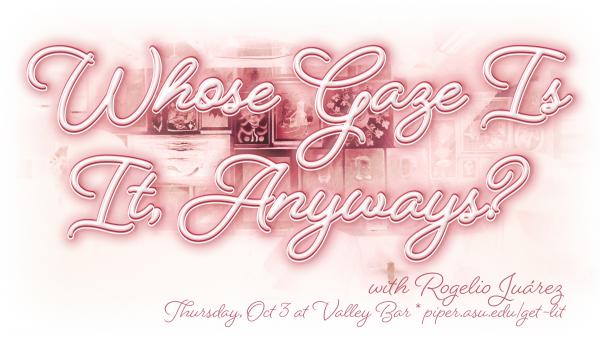
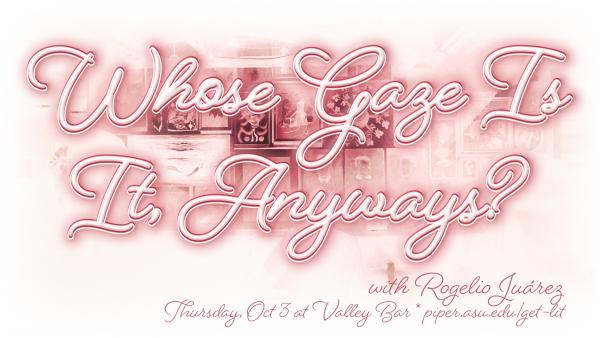
 For the purposes of argument, let’s assume that we can distinguish between form and content in writing. The latter – content – could be taken broadly to include things like what happens in a book, who is involved in the action, and the way characters are depicted. The former – form – could be taken to include the manifold ways the story is told and shaped, along with the matters of “craft” the author brings to bear.
For the purposes of argument, let’s assume that we can distinguish between form and content in writing. The latter – content – could be taken broadly to include things like what happens in a book, who is involved in the action, and the way characters are depicted. The former – form – could be taken to include the manifold ways the story is told and shaped, along with the matters of “craft” the author brings to bear.